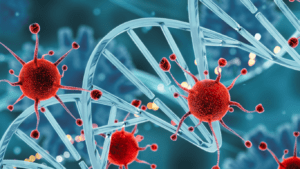Recognized as the World’s Cancer Capital India confronts a formidable challenge in addressing the escalating burden of cancer.
This title underscores the urgent need for a thorough examination of the factors contributing to the prevalence of cancer in the country.
Let’s delve deeper into the nuances of India’s battle against cancer and explore potential strategies to alleviate its impact.
Cancer, a formidable adversary, has firmly established its reign in India. The country, with its diverse population and vast geographical expanse, grapples with the escalating burden of this disease. World’s Cancer Capital India bears witness to an increasing number of individuals diagnosed with various forms of cancer.
Despite advancements in medical science, cancer continues to ravage lives across India. Limited access to healthcare facilities, especially in rural areas, exacerbates the situation. Many patients lack awareness about early detection and treatment options, leading to delayed diagnosis and poorer outcomes.
Tobacco usage remains a significant contributor to India’s cancer epidemic. Smoking and chewing tobacco are deeply ingrained habits in many communities. Efforts to curb tobacco consumption are underway, but progress is slow. Public awareness campaigns and stricter regulations are imperative to address this pressing issue.
The burden of cancer in India is not only a healthcare crisis but also an economic one. The cost of cancer treatment can be exorbitant, pushing many families into poverty. Limited insurance coverage and inadequate government support further exacerbate the financial strain on patients and their families.
Access to quality cancer care is unevenly distributed across India. While metropolitan cities boast state-of-the-art facilities, rural areas often lack basic infrastructure and trained healthcare professionals. Addressing this disparity requires concerted efforts from policymakers and healthcare stakeholders.
Preventive measures, such as vaccination against cervical and liver cancers, can significantly reduce the incidence of these diseases. However, widespread vaccination programs face logistical challenges and resistance from certain segments of the population. Overcoming these hurdles is crucial to effectively combatting cancer in India.
Table of Contents
Fake Cancer Drug Racket Busted By Delhi Police: Scam Unveiled!
Understanding the Cancer Crisis in India
An Overview of the Epidemic
The designation of World’s Cancer Capital India highlights the severity of the crisis gripping the nation. With a rapid increase in cancer cases, India finds itself at the forefront of the global battle against this formidable disease. Understanding the underlying factors contributing to this epidemic is crucial in formulating effective interventions and policies.
Factors Contributing to India’s Cancer Burden
Unraveling the Causes
Several factors contribute to India’s alarming cancer burden, ranging from lifestyle choices to environmental pollutants. Tobacco usage, including smoking and chewing, remains a significant risk factor, with a large segment of the population engaging in these habits. Additionally, exposure to carcinogens in the environment, such as air and water pollution, further exacerbates the problem.
Impact of Non-Communicable Diseases
Beyond Cancer: A Comprehensive View
The cancer epidemic in India is intertwined with the broader landscape of non-communicable diseases (NCDs). The prevalence of conditions like diabetes, hypertension, and mental health disorders adds to the healthcare burden, straining resources and infrastructure. Addressing the interconnectedness of these diseases is essential in devising holistic healthcare solutions.
Challenges in Cancer Screening and Detection
Barriers to Early Diagnosis
Despite the relatively young age at cancer diagnosis in India, screening rates remain low due to various barriers. Limited access to healthcare facilities, particularly in rural areas, impedes early detection and timely interventions. Additionally, widespread misconceptions and stigma surrounding cancer discourage individuals from seeking screening and treatment.
Empowering Communities Through Awareness
Promoting Cancer Education and Outreach
Raising awareness about cancer prevention, early detection, and treatment options is paramount in combating the epidemic. Community-based initiatives, educational campaigns, and outreach programs play a pivotal role in disseminating accurate information and dispelling myths surrounding cancer. By empowering communities with knowledge, World’s Cancer Capital India can foster a proactive approach to cancer prevention and control.
Strengthening Healthcare Infrastructure
Investing in Cancer Care
Expanding access to quality cancer care services is essential in addressing the growing demand for treatment. Strengthening healthcare infrastructure, enhancing oncology training programs, and deploying advanced technology are critical steps in improving cancer outcomes. Additionally, ensuring affordability and accessibility of cancer treatment is imperative to alleviate the financial burden on patients and their families.
Cash Deposit by UPI: The Revolutionary Way to Bank Without Cash Hassles
Collaborative Efforts for Progress
Uniting Against Cancer
Addressing the cancer epidemic in India requires collaborative efforts from various stakeholders, including government agencies, healthcare providers, civil society organizations, and the private sector. By fostering partnerships and synergy, India can leverage collective expertise and resources to implement comprehensive cancer control measures.
Conclusion
India’s designation as the “World’s Cancer Capital” underscores the urgent need for concerted action to combat the escalating burden of cancer. By addressing the underlying causes, promoting early detection and treatment, and strengthening healthcare infrastructure, India can mitigate the impact of the cancer epidemic and improve the overall well-being of its population. It is imperative for stakeholders to unite in the fight against cancer and work towards a future where the title of the World’s Cancer Capital India no longer defines India’s healthcare landscape.















